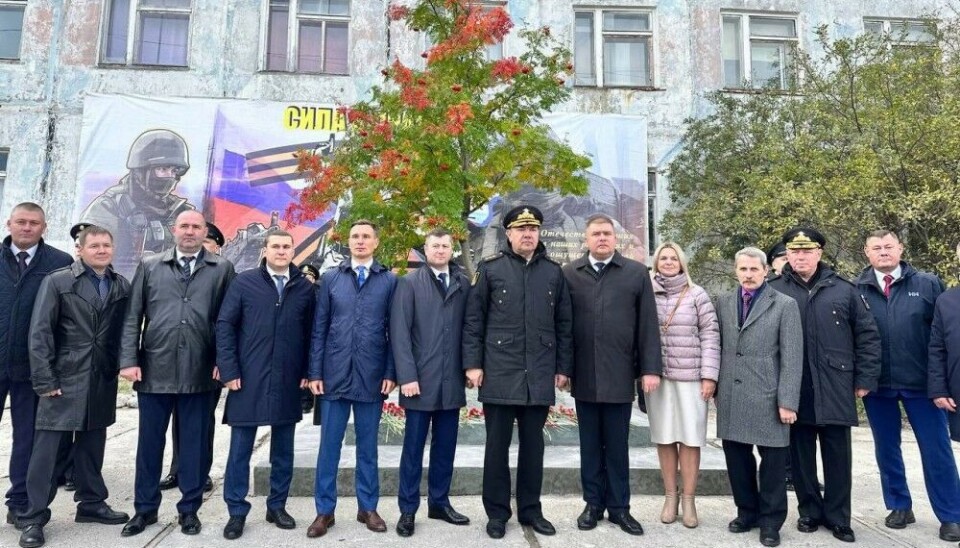
Will Russia revive infamous SMERSH counter-intelligence in Kola Peninsula?
The structure established by Josef Stalin to fight "anti-Soviet elements" is today praised by the security agencies in the heavily militarised Murmansk region. Strong forces in Russia call for the resurrection of the notorious service across the whole country.
It triggered a shiver of cold among many when photos of Russian officers in uniforms marked with SMERSH emerged on social media in early January this year. The operatives had apprehended a man from the south Russian Belgorod region and forced him to publicly apologise for his filming of a Russian air defence system battling Ukrainian drones.

The photos came only few weeks after Andrei Gurulyev, a Member of the State Duma and Lieutenant General in the Russian Armed Forces, announced that the SMERSH was being reestablished.
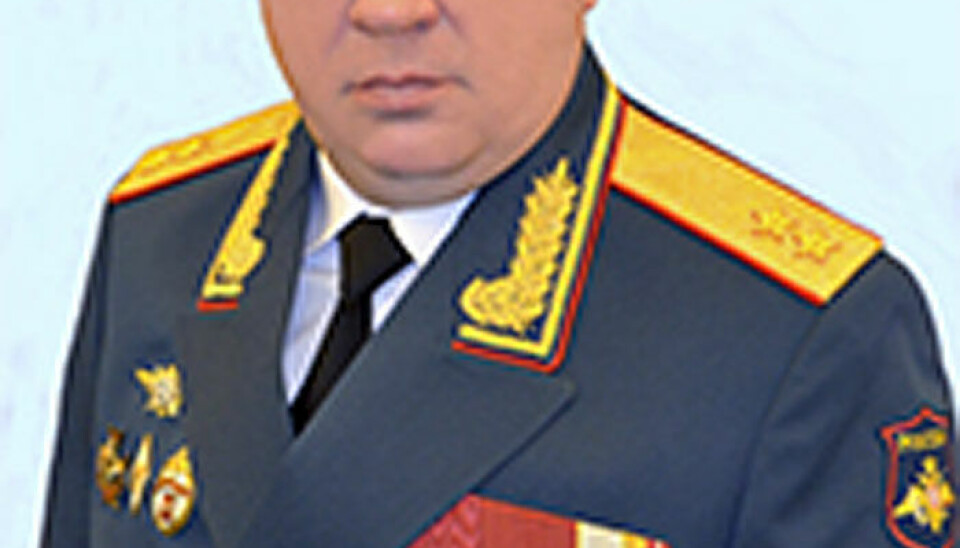
“We were talking about SMERSH, [and] a management has today been established, […],” Gurulyev said in a post on Telegram.
According to the politician, who is believed to have been associated with Yevgeny Prigozhin’s Wagner Group, the SMERSH will operate not only on the territories of Ukraine occupied by Russia, but in all of Russia.
“We today understand that there are emerging people in our country that are assisted by Western special services and that will play dirty tricks with us,” Gurulyev argued, and added that “the fight with saboteurs and spies on the territory of the whole country is necessary, after all the war has embraced all the territory of the Russian Federation.”
In his Telegram post, published shortly after Ukrainian agents’ successful sabotage operation against the BAM railway tunnel, the controversial hardliner especially mentioned nuclear submarine bases “that also can be threatened and endangered.”
SMERSH is an abbreviation of Smert Shpionam (death to the spies). It was established by Stalin in 1942 and existed until 1946.
Before elected to the State Duma in 2021 for the United Russia Party, Andrei Gurulyev was known for his engagements in Chechnya, Syria and Russia-occupied Donbas. He was given the rang Lieutenant General in 2014 and appointed Deputy Head Commander of the Southern Military District in 2016.
But Gurulyev is far from the only prominent member of Russia’s increasingly totalitarian regime that calls for the revival of the Stalin-era security structure.
The counter-intelligence organisation that was established by Stalin in a bid to fight German spies and foreign intelligence, as well as hunt down real and perceived “traitors” and “anti-Soviet elements” in the Red Army, is today praised by many in the Russian security services.
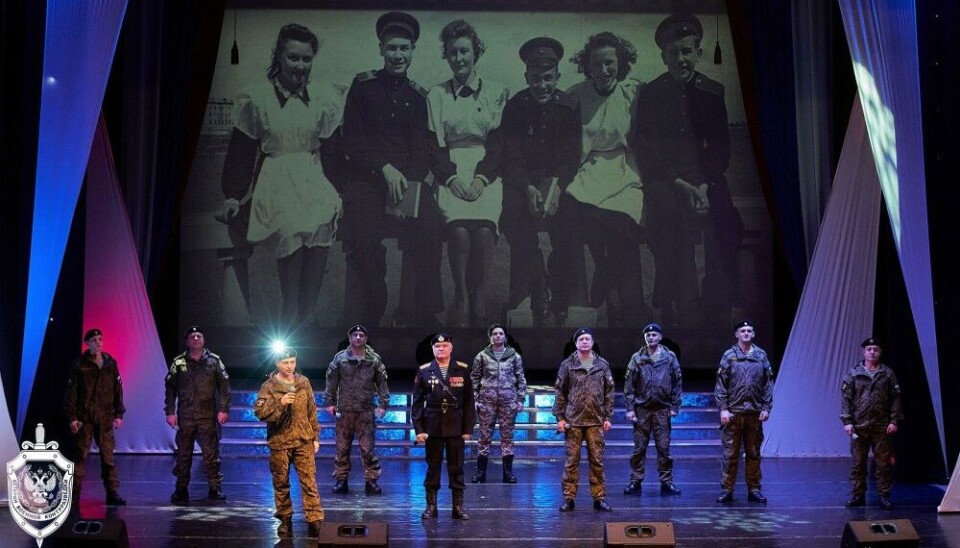
That includes the Armed Forces and the FSB in the far northern Russian Kola Peninsula.
Over the last years, the Northern Fleet has annually celebrated the SMERSH on the 19th April, the organization’s day of establishment.
In 2023, on the 80-year anniversary of the structure, there were special celebrations, not only in the regional security services, but also in local schools such as the local Nakhimov naval school in Murmansk. In a statement, the regional FSB calls SMERSH “the most efficient counter-intelligence service of the 2WW.”
When a space rocket was launched from the north Russian Plesetsk cosmodrome in early August 2023, it carried a picture of Ivan Leonidov, a leading SMERSH officer from the region.
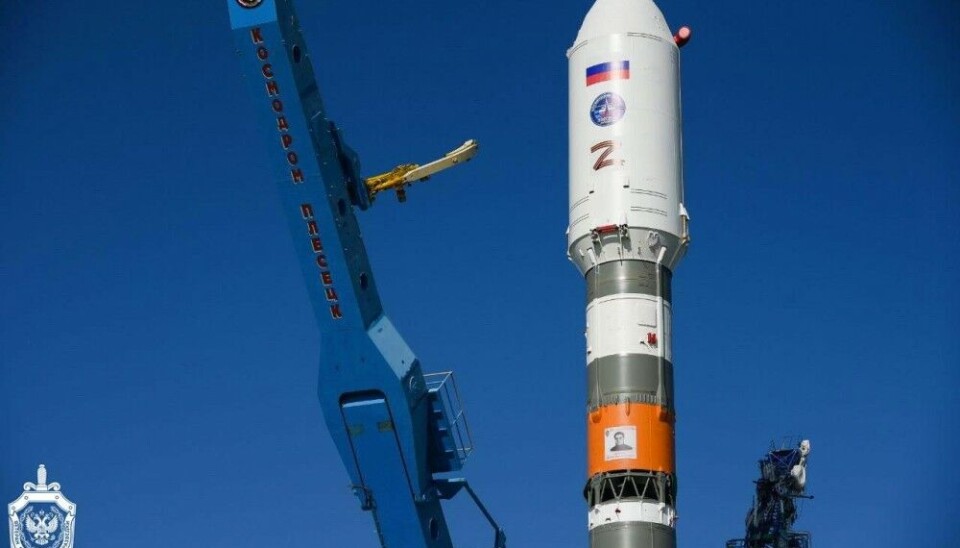
According to the FSB, more than 30,000 spies, about 3,500 saboteurs and 6,000 terrorists were neutralised by SMERSH in its years of operation between1942-1946.
“In the Kola Peninsula, the Northern Fleet was in constant contact with German-Fascist naval and army forces, something that created favourable possibilities for the penetration of enemy agents into our troops,” the FSB informs.
Reportedly, the SMERSH arrested 35 spies in the Northern Fleet in the period.
It is not clear how many innocent servicemen that were illegitimately arrested and charged for espionage, but the number is likely to be in the thousands.
The legacy of the SMERSH today lives on in the Russian security services and especially the FSB.
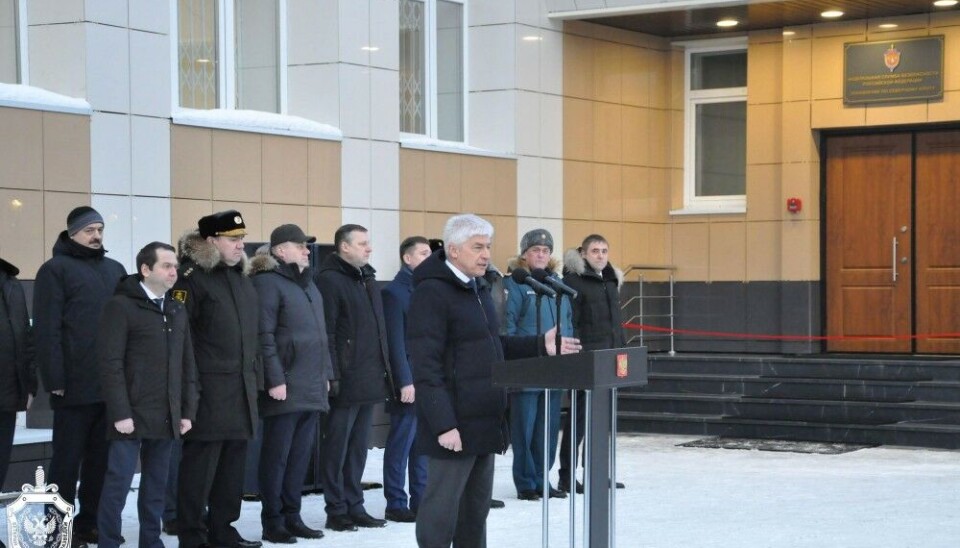
In January 2023, the FSB that operates as part of the Northern Fleet, opened a grand new office complex in Severomorsk, the Fleet headquarter city. Judging from satellite images, the complex that is located at the local Vice Admiral Padorin Street covers a 150 meter long area. The opening of the new complex was attended by the top brass of the regional FSB, as well as Murmansk regional Governor Andrei Chibis and a string of other dignitaries, photos from the opening show.
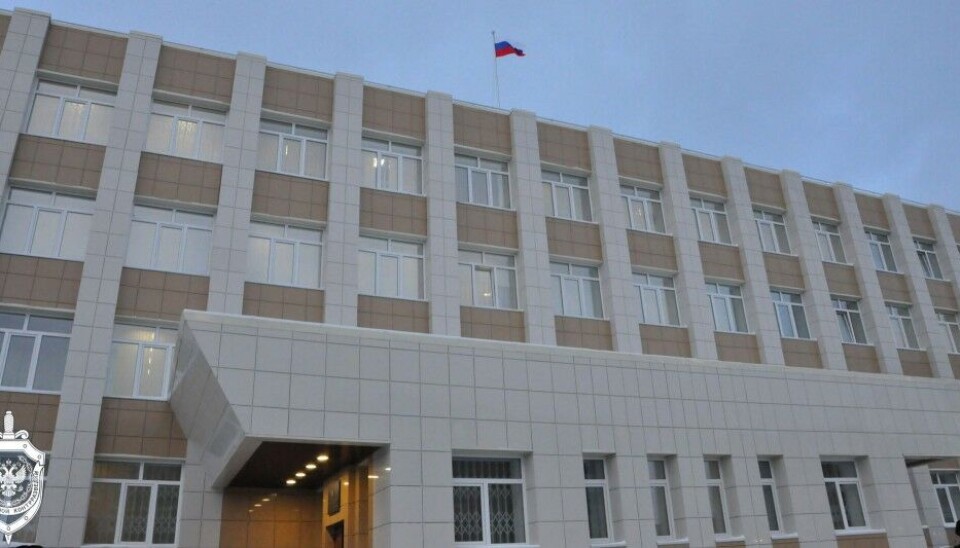
The FSB also has a brand new office complex in downtown Murmansk. It is one of the highest buildings in town and has an unmistaken Stalin-era architecture.
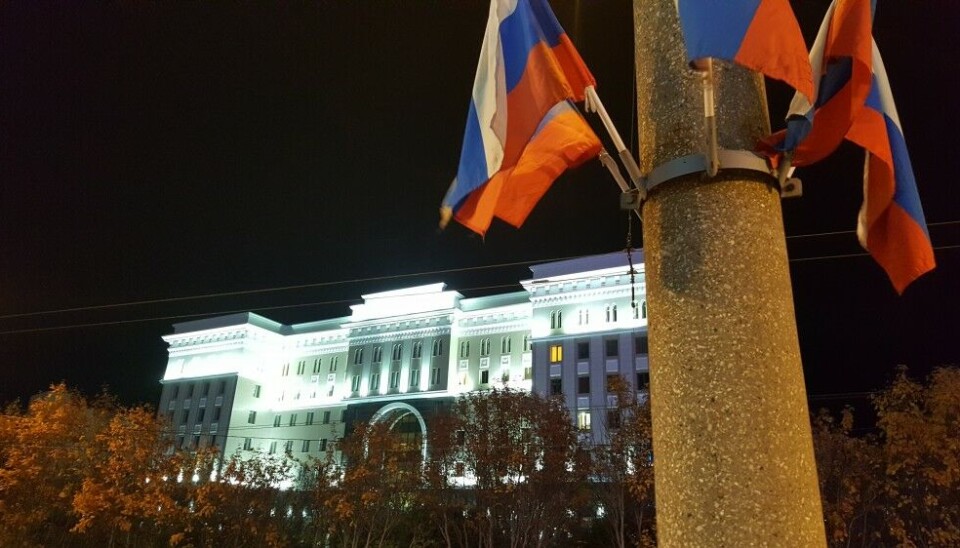
In September 2023, the Northern Fleet FSB opened a new monument in the navy town of Polyarny devoted to the officers that established the security service in the Kola Peninsula in 1933.
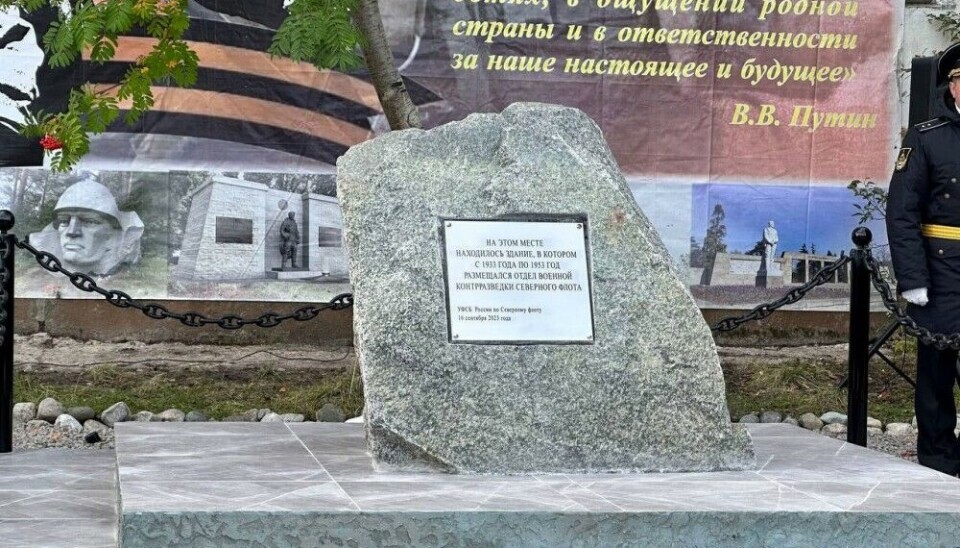
At that time, the security service was called NKVD and served as main tool for Stalin’s terror regime.
The opening of the monument in Polyarny was attended by Head of the Northern Fleet FSB Aleksei Stafeev and Head Commander of the Northern Fleet Aleksandr Moiseev. On site was also Chairman of the military intelligence veteran organisation Andrei Karasyev, as several more political and military representatives.
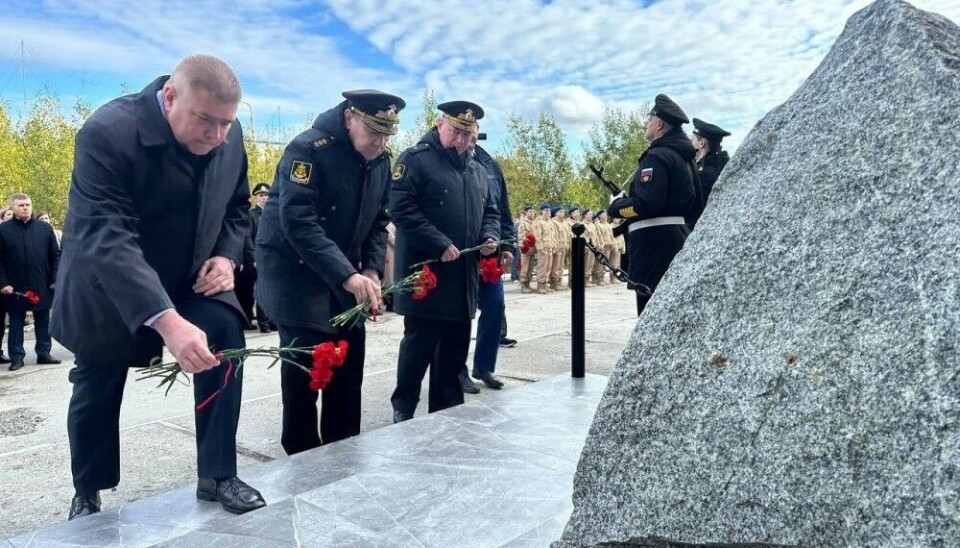
“Today’s event — the opening of a memorial — is a sign of respect and memory of our predecessors, a high appraisal of their achievements, and a reminder to our generation about the people that almost from scratch managed to build a system of defence and security here in the North,” Admiral Moiseev said in a speech.
“The victory in the Great Patriotic War was proof of the successful operations that were undertaken jointly by our forefathers, both the soldiers of the Northern Fleet and the counter-intelligence operatives of the Northern Fleet,” Moiseev added.














